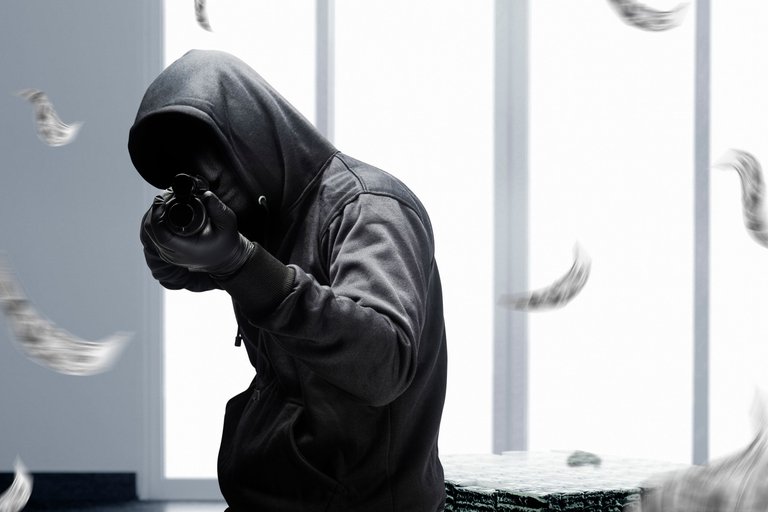What we see in the society
Greetings!
The issue of glorifying crimes in our society, making evil seem good, and portraying those who commit them as wise while those of us staying clean are viewed as foolish, is a troubling trend. Last month, there was a heated debate on the social media platform X, specifically directed at the famous songwriter Phyno. This was because he paid tribute to one of the most dreaded armed robbers Nigeria has ever known, Derico.

The backlash was swift, with questions like, "Why is he promoting evil?" being raised. As far as Nigeria is concerned, a person with the kind of criminal history Derico had should not be celebrated. By mentioning him in this manner, many argued, we are promoting crime.
As for me, while I appreciate the rhythm of the song, I strongly disagreed with Phyno's decision to hail a notorious criminal like Derico. Interestingly, many people from the East—Phyno’s home region, and also where Derico originated from—were supporting the songwriter. They claimed that regardless of whether Derico did good or bad, he would forever be remembered as a significant figure in the history of Igbo land.
I wasn't aware of Derico during the time he was terrorizing the nation. In fact, I didn’t know anything about him until I watched the movie Derico, which vividly depicted all the harm he caused and how difficult it was for the police to capture him. I clearly remember that it was a policeman in the neighboring compound who bought the VCD of the movie, and we would borrow it and watch it one after the other. Honestly, after watching it, we found ourselves praising Derico’s ability to disappear, reappear, and outwit the police whenever they tried to apprehend him.
Now, thinking about it, I realize that movies like that aren’t necessarily meant to glorify crime but rather to serve as a way of telling and preserving stories of past events. As I mentioned earlier, I had no idea about Derico until I saw the movie. Afterward, I gained a clearer understanding of what Nigeria endured at the hands of this man and his gang. The only time such films seem to glorify crime is when they are portrayed in a way that encourages young people to emulate these criminals. However, if the movie ends with the criminal facing justice, then a clear lesson can be learned.

That being said, it’s a different case entirely when a musician worships and praises a notorious criminal. That is undeniably wrong.
It’s similar to how many movies today encourage crime, particularly internet fraud, which has sadly become a norm in society. It’s distressing. Back in the day, movies depicting rituals for acquiring wealth through human sacrifices, even though they portrayed evil, were cautionary tales. After watching those films, one would be frightened at the mere thought of engaging in such a lifestyle, knowing that the spirit of the sacrificed person would seek revenge, leaving the ritualist with a terrible fate.
So while the movies did portray evil, the moral of the story—often a grim ending for the criminal—discouraged viewers from following such paths.
There are so many things going on today and all one needs to do is to be careful the kind of movie we see. Although some movies with criminal scenes tends to show the danger in it which is sure good like that but incase there are kids around, such movies should be avoided.
Yeahh, that's why parental guide is necessary for children on such movies.
Thank you for stopping by
Thank you for using ECENCY